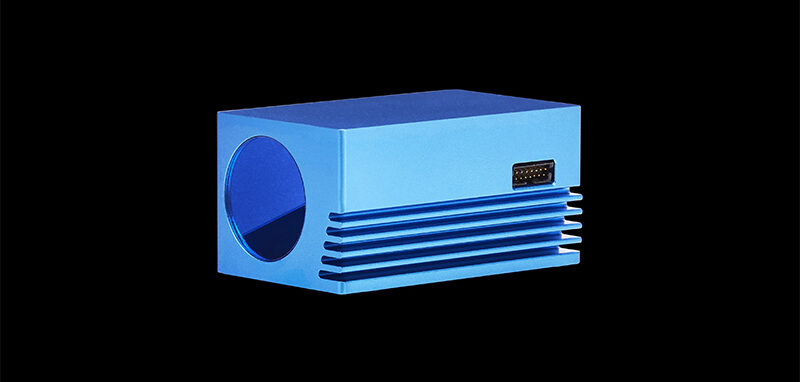The developer of the Spectrum-Scan lidar technology for autonomous vehicles, Baraja, has unveiled Spectrum HD, which it says is the world’s first system ready for Level 4 autonomy at scale.
Available for samples in 2022 and designed for volume production, Spectrum HD is said to deliver high-performance sensing at range, with per-point Doppler capability at the hardware level, for less than US$1,000 per unit to enable automotive integration.
Built on Baraja’s proprietary solid-state scanning platform, Spectrum-Scan, the new lidar system will enable the range, resolution and performance required for true autonomy, without the traditional trade-offs faced by other legacy lidar technologies. The company states the system removes blur and speckle, and is immune to interference from other light sources, including other lidars.
The setup delivers a lidar system combining per-point Doppler capability at the hardware level, with a tunable laser and random modulation continuous wave (RMCW) ranging method to deliver unparalleled performance and accuracy at range and speed.
Traditional lidar systems typically rely on computationally intensive frame-to-frame estimations of velocity, requiring trade-offs in performance, accuracy and timeliness of critical measurements. Spectrum HD uses an architecture built from the ground up, becoming the only lidar to currently deliver Doppler capability embedded in the hardware itself, alongside a tunable laser that enables solid-state scanning, with RMCW ranging, to deliver high performance, automotive cost and overcome traditional obstacles to autonomous sensing.
The system uses homodyne detection to measure the distance and velocity of an object within a single frame, at every point in the lidar point cloud. By combining this detection with Spectrum-Scan and RMCW, Spectrum HD can quickly and reliably detect objects — from pedestrians to vehicles or animals — at long range and speed to enable safer autonomous driving.
Measuring Doppler per point, at speed, also enables the system to detect critical edge cases — such as quickly identifying when something may jump into the lane or when oncoming traffic is approaching — to ensure autonomous vehicles can understand and react to extreme scenarios quickly. By measuring and differentiating objects at speed and long distance, Spectrum HD will enable autonomous vehicles to detect and track small, individual objects such as pedestrians at range, and monitor for sudden changes in movement which require fast reaction from the vehicle.
Spectrum HD samples will be available in 2022 with design-ins already underway for volume automotive production programs. Baraja is working closely with global auto makers and partners including Tier 1 supplier Veoneer to build the manufacturing supply chain and testing facilities required to manufacture and deliver the product to auto makers at scale.
“We built Spectrum-Scan with a radically different approach to traditional lidar systems. With Spectrum HD, that platform will become available to automotive partners, at the scale, cost and performance needed to make true autonomy a reality,” said Federico Collarte, founder and CEO of Baraja.
“At Baraja, we’ve paired per-point Doppler with our patented Spectrum-Scan technology to develop a winning solution lidar for auto makers who want to enable true Level 4 autonomous driving capabilities without the trade-offs that legacy lidar technologies present. We’re proud of how our lidar capabilities have developed and we’re on track with a product roadmap and production ramp-up to support Level 4 autonomy.”


